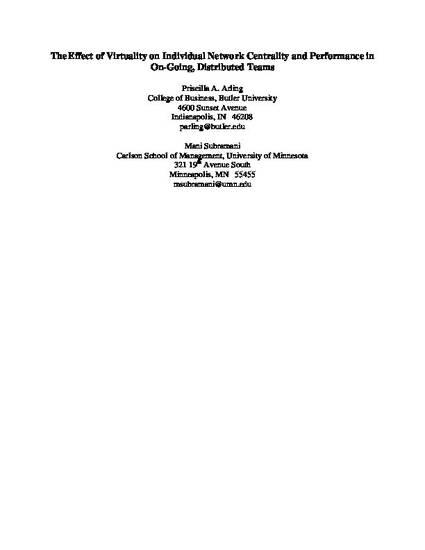
For distributed teams to succeed, individuals must interact successfully within team social networks. To understand individual performance in distributed teams, we consider a multi-dimensional view of individual virtuality and its relationship with centrality in the team’s face-to-face network and ICT network. We leverage social network theory and hierarchically analyze data from 254 individuals in 18 teams. We find that members with higher dispersion are less central in the face-to-face network while those with higher ICT use are more central in the ICT network. Centrality in the ICT network, but not centrality in the face-to-face network, is positively related to performance. The results provide insights for academics and practitioners on how to improve individual performance in distributed teams.
This article originally appeared in International Journal of Internet and Enterprise Management
Arling, P. A. and Subramani, M. 2011. “The Effect of Virtuality on Individual Network Centrality and Performance in On-going, Distributed Teams,” International Journal of Internet and Enterprise Management, 7(4), pgs 325-348.
Available at: http://works.bepress.com/priscilla_arling/24/
